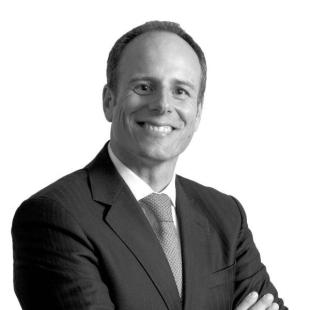
Interview with
Working at Empresas CMPC for over 18 years, I started when the company operated under a model of not having internal lawyers. Everything was outsourced. My role was basically to coordinate external lawyers and report to the board and the CEO. My main responsibility over the years has been to change the previous general counsel model of the company and create a sophisticated and capable internal team to address the complexity of CMPC operations and rely extensively on external counsel.
Today, I coordinate and manage a large number of attorneys scattered throughout Latin America, including Chile, Argentina, Uruguay, Peru, Colombia, Ecuador and Mexico, and I am also responsible for the company’s compliance and reputational risk. Since last year, I am also in charge of the company’s risk management programme.
The community of GCs in Latin America is catching up with a trend that started 20 years ago in the United States and Europe.
Today, in-house lawyers in Latin America expect to be influencers and have key roles in different industries. They want to be statesmen and advisers and expect to be involved in the strategy of the company’s board. Although they no longer want to be seen as a cost centre for the company, few GCs have reached that level of influence. Many others spend a greater percentage of their day doing day-to-day legal work that was previously handled by external counsel.
Early in my tenure as GC, I had to deal with a reputational crisis facing CMPC. This finally gave me the opportunity to challenge the legal structure of the company and change the way we operated. The company adopted a new approach and realised how necessary it was to empower the general counsel in his role and within the structure of the company.
It was a very complex case and we did not have a clear roadmap on how to handle the situation correctly. I participated in board meetings and several of my suggestions were taken forward. It was without a doubt a crucial moment for me in my professional career and also for the company. The crisis and its aftermath demonstrated that it was necessary to have somebody outside the business team who knew the company well, knew the people, the procedures, the ethos, and who could give an unbiased and honest opinion to challenge decisions and propose new ideas. I believe that I am truly operating at a strategic level, either because I have managed to build an approach to demonstrate legal value or because circumstances have given me the opportunity to demonstrate the real value that in-house counsel can bring to a business. Sometimes, in-house lawyers don’t have the opportunity to demonstrate that value.
The value we create is based on protecting the value the business generates.
The way you gain influence is to be very close to the business, to really understand it and also have a business mindset. I’m very clear that my client is the corporation. They know I have a business mindset and I’m the head of a division that is there to help improve the business. But when we say no, they also know that this answer is final. The challenge is to balance those two roles.
To be an influential lawyer and place yourself at the top of the value pyramid, you need to prove every day that you are helping. But your peers in the commercial division cannot measure your value alone by saving money. My job is not to create value at all. My job is to defend value; they create value and you maintain and defend it. I don’t narrowly define value as being solely about cost reduction. Although cost is clearly important in any organisation, I see that there is something more tied to the business in terms of the value the business generates and how to preserve it or indeed enhance it.
I have to build relationships, be close to the business and earn the trust of the business.
To maintain the trust of the business, I am very strict with the selection process of my internal team. I choose people who promote business, who see themselves as business partners and who believe in excellence. I am also very clear with them when I conduct every interview that we will make mistakes every day, but that there is only one mistake that I will never tolerate: exposing the company to something that is unethical or illegal and that will cause harm to the corporation, regardless of the seniority of the individual.
At InterCorp, we launched an initiative called InterCorp Roundtable, where we bring local and regional law firms to discuss digital changes. We have discussed various issues relating to data, including data analytics and how to manage data, following stricter regulations. We know we must work together with regulators.




